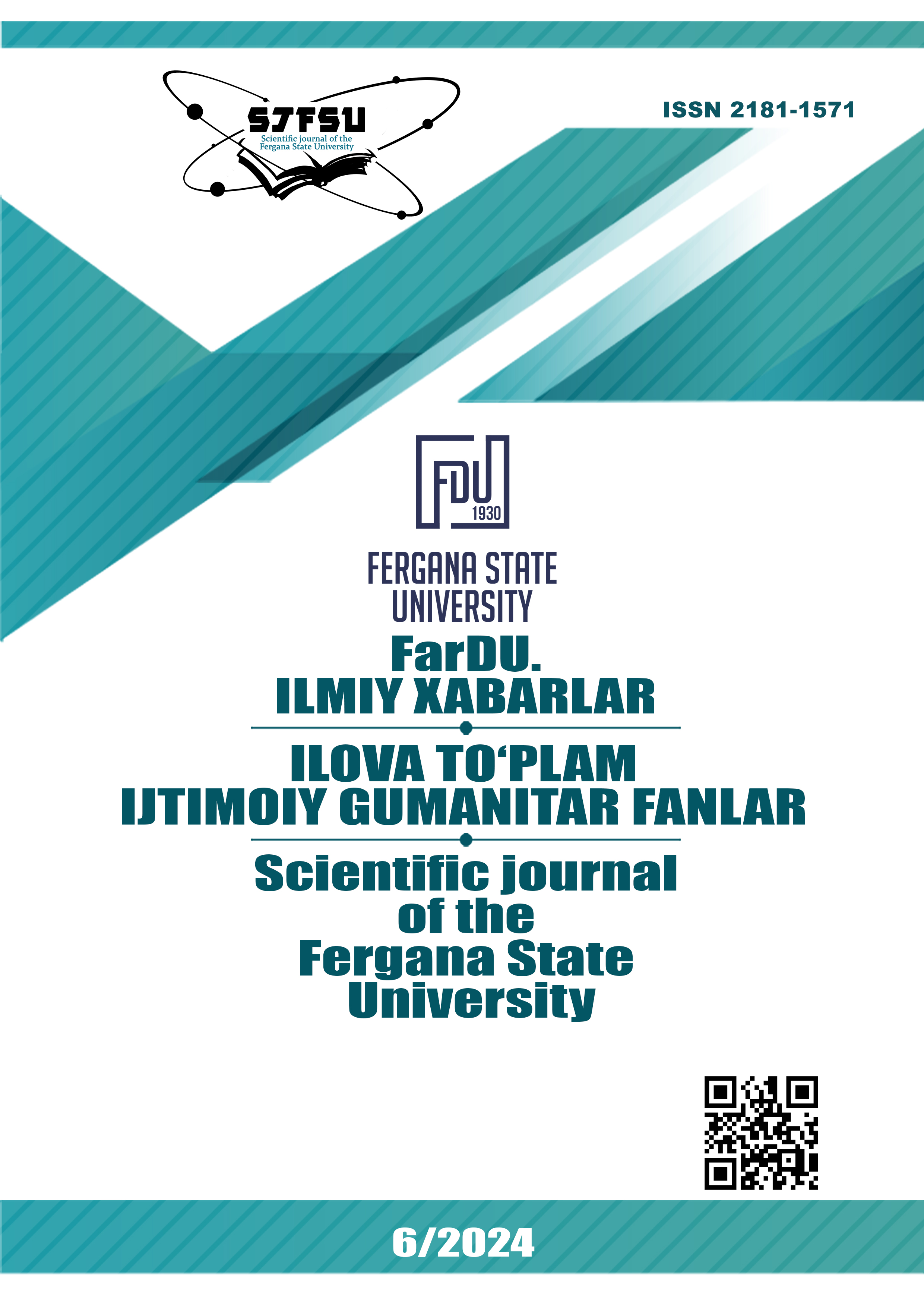АНАЛИЗ НАЦИОНАЛЬНОГО КУЛЬТУРНОГО КОДА В УЗБЕКСКИХ И АНГЛИЙСКИХ ЭВФЕМИЗИРОВАННЫХ ПОСЛОВИЦАХ И ПОГОВОРКАХ
Ключевые слова:
культурный код, линвокультурология, лингвокультурема, пословица, поговорка, зооморфный, предметный код, тематическая группа.Аннотация
Направление лингвокультурологии связано с языковым ландшафтом мира, сложившимся в любой культуре. Национальный культурный код активен в пословицах и поговорках, отражающих разные сферы человеческой жизни, и хранится в памяти общества. Если понятия даны в переносном смысле и передаются посредством символов, то они изучаются в рамках семиотики, а культурные коды являются объектом исследования лингвокультурологии. В ходе исследования эвфемизмы в пословицах и речи активировались посредством разных кодов, при этом были выделены следующие культурные коды: зооморфный, биоморфный, анимический, гастрономический, антропоморфный, исторический, религиозный, мифологический, предметный, временной код. В статье на основе пословиц и поговорок, разделенных на тематические группы, проанализированы зооморфный, предметный и гастрономический культурные коды.
Библиографические ссылки
Воробьев В.В.Лингвокультурология (Теория и методы): Монография.– М.: РУДН, 1997. –331 с.
Ковшова М.Л. Лингвокультурологический анализ идиом, загадок, пословиц и поговорок: антропологический код культуры. –М.: Ленанд, 2019. – 400с.
Каландаров Ш. Факторы лингвокультурологического изучения языковых единиц//Молодой учёный, 2017. – № 10 (50). – С.629-632;
Телия В.Н. Русская фразеология: Семантический, прагматический и лингвокультурологические аспекты. – М.: Языки русской культуры, 1996. – 288 с.; Телия В.Н. Первоочередные задачи и методологические проблемы исследования фразеологического состава языка в контексте культуры // Фразеология в контексте культуры / Отв. ред. В.Н.Телия. – М.: Языки русской культуры, 1999. – С. 13-24.
Худолей Н.В. Национальный код культуры и его актуализация в пословицах, поговорках и классических литературных текстах//Вестник РУДН. Серия: Вопросы образования: языки и специальность, 2017. – Vol. 14. – №. 4.–С. 643-653.
Kalandarov Sh. Proverbs euphemisms a means of expressing the individuality of the speech of characters//International Journal of Trend in Scientific Research and Development. –P.51-52.
Shomaqsudov Sh., Shorahmedov Sh. Hikmatnoma. O‘zbek maqollarining izohli lug‘ati.Toshkent: O‘zbek sovet ensiklopediyasi bosh redaksiyasi, 1990. –B.10-11.
Shomaqsudov Sh., Shorahmedov Sh. Hikmatnoma. O‘zbek maqollarining izohli lug‘ati.Toshkent: O‘zbek sovet ensiklopediyasi bosh redaksiyasi, 1990. – B.73.
Senichkina Ye.P., Slovar evfemizmov russkogo yazika, М., 2008
Загрузки
Опубликован
Выпуск
Раздел
Лицензия
Copyright (c) 2025 Научный вестник Ферганский государственный университета

Это произведение доступно по лицензии Creative Commons «Attribution-NonCommercial-NoDerivatives» («Атрибуция — Некоммерческое использование — Без производных произведений») 4.0 Всемирная.
Как цитировать
Наиболее читаемые статьи этого автора (авторов)
- , АНАЛИЗ КЛАССИФИКАЦИЙ ЭВФЕМИЗМОВ , Научный вестник Ферганский государственный университета: № 3 (2022): Научный журнал Ферганского государственного университета

